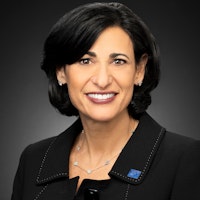

By Patrick Breysse, Director, National Center for Environmental Health/Agency for Toxic Substances, Centers for Disease Control and Prevention, and Judy Monroe, President and CEO, CDC Foundation.
While the COVID-19 pandemic has rightfully drawn the full response of the global community, we in public health protection remain committed to addressing other health threats, including those brought about from our changing climate, which represents one of the greatest challenges to health for the 21st century.
With weather patterns changing and temperatures rising, so too are the risks of respiratory and cardiovascular disease, weather-related injuries and deaths, food insecurity and threats to mental health and wellbeing. While the outlook is daunting, there is good news—there is a lot we can do to prepare for this dangerous threat.
Though all of humankind is at risk, communities with weak health and public health infrastructure are the least equipped to cope with the health impacts of a changing climate. Globally and in the United States, those communities that already experience health inequities are facing increased and compounded climate impacts.
For instance, as the planet warms, the range of mosquitoes carrying dengue, malaria, and Zika expands, putting more and more populations at risk. Poor crop yields due to drought and heat will increase incidence of malnutrition. Flooding from strong storms will destroy homes, contaminate drinking water supplies, and spur growth of molds. And, smoke from wildfires will pollute the air increasing the risks for cardiac and respiratory problems.
Access to healthcare in many under-resourced tribal and rural communities is limited. For those communities most threatened by the health impacts of our changing climate, preparedness is key. To take effective action, communities need access to scientifically-based information on these health impacts, made available through targeted messaging and coordinated communications. They need training to identify and protect vulnerable citizens from extreme weather and resources to bolster resiliency. With the right information and resources, communities themselves can identify the most at-risk populations and potential health effects.
To build capacity within communities, it’s critical to provide technical assistance to local public health agencies so they can address gaps in essential public health protection functions and services, incorporate climate projections into public health planning and response activities, and exchange best practices with other impacted communities. CDC through its Climate-Ready States and Cities Initiative is already using its knowledge base to help state, tribal, local and territorial health departments prepare for and respond to the health effects of a changing climate. And this program provides a strong foundation on which to expand.
Rochelle Walensky, MD, MPH, director of the Centers for Disease Control and Prevention, spoke to this point at the recent Aspen Ideas: Health Festival in Colorado, where she was a featured panelist.
Big IdeaWe in this room are devoted and dedicated to health, but we can’t do this alone. This has to be cross-sector; this has to be multi-disciplinary. We have health-related impacts, but the answers have to be much bigger than health. The prevention has to be much bigger than health.Rochelle Walensky
It is critical those most disproportionately impacted by our changing climate be the guiding voices behind any actions. This helps ensure everyone, regardless of social position or socially determined circumstance, has equal access to life-saving information and services. To amplify those voices, we need to build strong partnerships for public purpose that include not only community-based organizations deeply connected to impacted communities but also non-public health partners. These include businesses, federal agencies, Historically Black Colleges and Universities and other academic and cross-sector organizations. Such partnerships will better equip under-resourced communities to holistically and effectively address preparedness gaps.
For those partnerships to fully succeed, expertise on the ground is essential.
Since the start of the COVID-19 pandemic, the CDC Foundation has hired, deployed and managed nearly 3,500 frontline staff in state, local and territorial health departments across the country. These professionals have bolstered the nation’s public health capacity at the leading edge of the pandemic response.
By training a cadre of public health workers to address the health challenges posed by our changing climate, the CDC Foundation is well-positioned to work with CDC to develop a national Climate Health Corps equipped to prioritize and address climate and environmental health-focused issues in under-resourced and impacted communities nationwide. In this regard, the CDC Foundation can work in partnership with CDC to expand existing supports to benefit more people in the United States.
When it comes to mitigating the health impacts of our changing climate, now is the time to act. Though COVID-19 has created an unprecedented burden on public health, we must take urgent steps to rebuild the public health system with a focus on climate and health. This will require strong public-private partnerships committed to bolstering local public health capacity, elevating trusted local voices and working together to support impacted communities in taking effective, long-term and sustainable climate health action. We are stronger together.
WATCH:

Elizabeth Cohen, Rochelle Walensky, Leah Thomas, and Marlene Wolfe discuss the health effects of climate change at Aspen Ideas: Health 2022.
-
 Elizabeth Cohen
Elizabeth Cohen -
 Rochelle Walensky
Rochelle Walensky -
 Leah Thomas
Leah Thomas -
 Marlene Wolfe
Marlene Wolfe
___________________________________________________
CDC Foundation is a 2022 Aspen Ideas: Health underwriter. The views and opinions of the author are their own and do not necessarily reflect those of the Aspen Institute.

